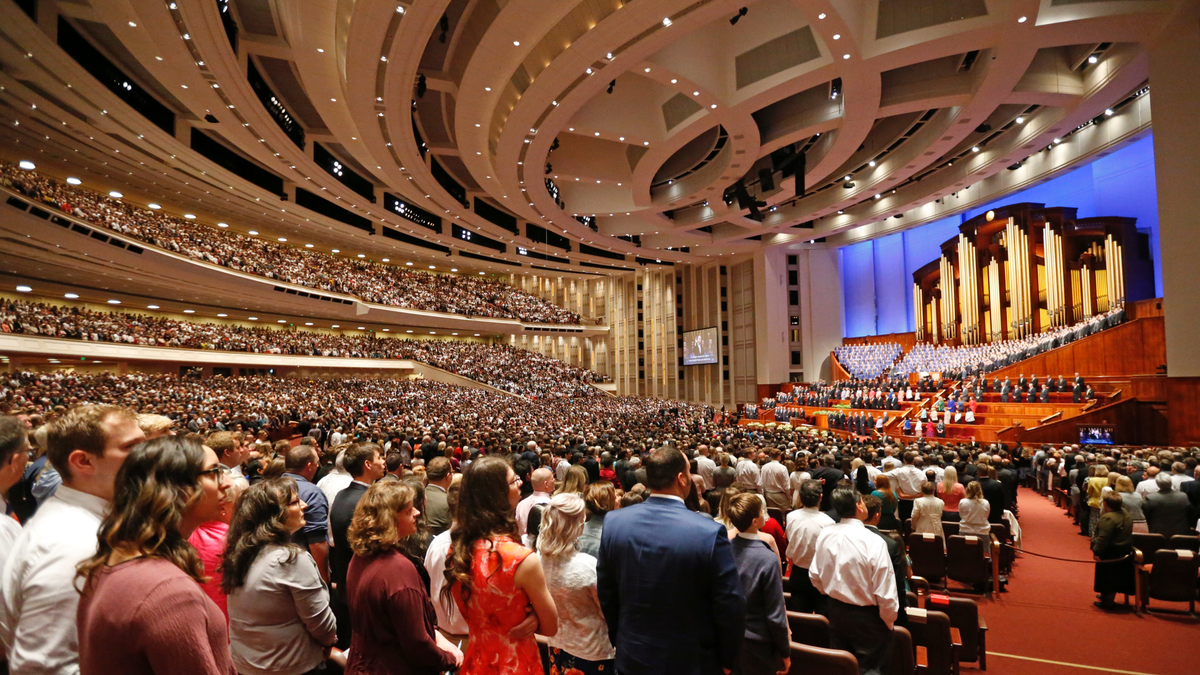
SALT LAKE CITY – The Mormon church faced more criticism Monday about its approach to sexual abuse after a top leader praised the #MeToo movement but referred to sexual misconduct as "non-consensual immorality," a remark that some say could be interpreted as victim blaming.
Quentin L. Cook, a member of a top church governing body, made the comment this weekend in the only mention of the topic during a two-day Mormon conference despite the church facing heavy scrutiny over accusations that a former prominent missionary leader sexually assaulted two women in the 1980s.
Cook was giving a speech about righteousness Sunday, days after The Church of Jesus Christ of Latter-day Saints announced updated guidelines for reporting sexual abuse.
"It is commendable that non-consensual immorality has been exposed and denounced," said Cook, a member of the Quorum of the Twelve Apostles. "Such non-consensual immorality is against the laws of God and of society.
"However, those who understand God's plan must also oppose consensual immorality, which is also a sin," he said of the faith that teaches that sex outside marriage is a sin.
Even if Cook had good intentions, it was a poor choice of words that reflects the church's lack of education about appropriate ways to discuss sexual misconduct, said Natasha Helfer Parker, a Mormon who is a certified sex therapist in Wichita, Kansas.
Victims of sexual abuse should not be grouped with "immoral" acts, she said.
"They need very clear language from leaders that places the onus of the responsibility on the perpetrator, not this indirect, kind of vague language," Helfer Parker said. "That just shows the level we're at as far as not being able to handle this issue appropriately."
Church spokesman Eric Hawkins declined to comment Monday about the criticism of Cook's speech. It's common for church officials to let conference speeches stand without further explanation.
Helfer Parker was among about 1,000 people who marched to the church's headquarters Friday in Salt Lake City to demand an end to closed-door, one-on-one meetings between local adult church leaders and children and the sexual questions they sometimes include. They believe the questions in the so-called worthiness interviews can lead to unhealthy shaming of youth.
In guidelines issued last week for how local leaders should handle sexual abuse reports and one-on-one meetings with youth, the church said most "allegations of abuse made by assault victims are true and should be taken seriously and handled with great care."
The church included new or more direct instructions for local lay leaders, known as bishops, never to disregard a report of abuse or encourage a person to stay in a home or situation where abuse is suspected.
A new rule also allows children to bring a parent or adult with them during the one-one-one interviews. Parents were only allowed in a hallway or adjacent room under old rules. Youth can still go in alone if they choose.
Some say those changes don't go far enough. Crystal Legionaires, a 23-year-old former Mormon, who said she stood up during the church conference this weekend and shouted three times, "Stop protecting sexual predators," to bring attention to a topic she thinks the church is trying to ignore.
Legionaires, who said she identifies as transgender and bisexual, said she thinks church officials unfairly stood up for a missionary leader rather than believing the women who accused him of sexual assault.
Church officials have said that the women reported abuse in recent years to local leaders but that no discipline was taken against Joseph L. Bishop, former director of the Missionary Training Center. They are investigating the allegations and have vowed to "bring accountability."
Bishop has denied through his son, an attorney, any wrongdoing. But he can be heard apologizing in a secretly recorded conversation with one of the accusers and acknowledging that he molested a second woman, describing it as backrub that got "too frisky."
Bishop told police investigating a rape claim from the first woman that he asked her to expose herself but denied raping her.
Legionaires called Cook's comment troubling.
"It can very much be construed as victim shaming," she said. "Instead of saying things like sexual assault or rape, they're using euphemisms as a way to try deliberately mask the truth. I find that really problematic and really frustrating."

